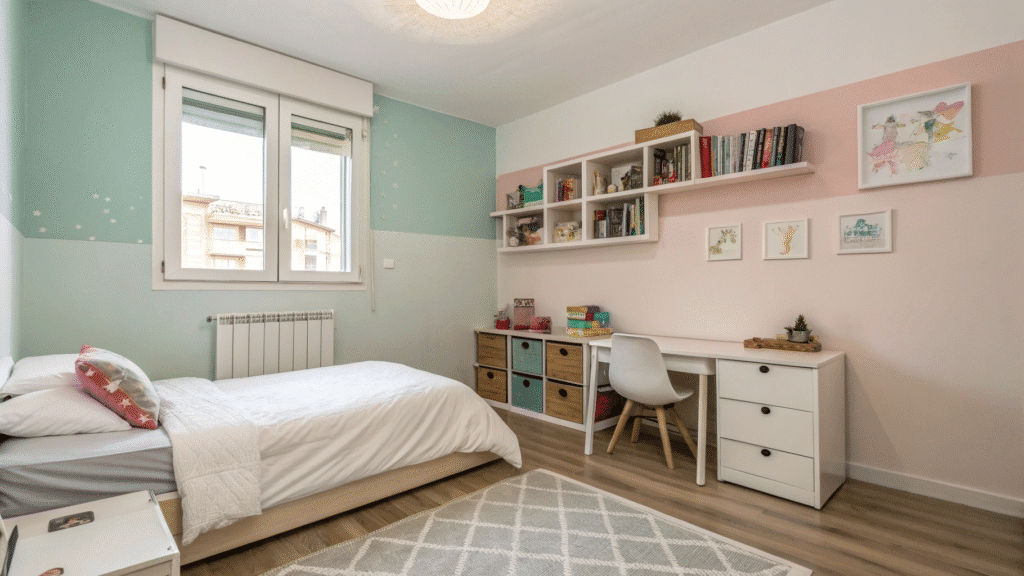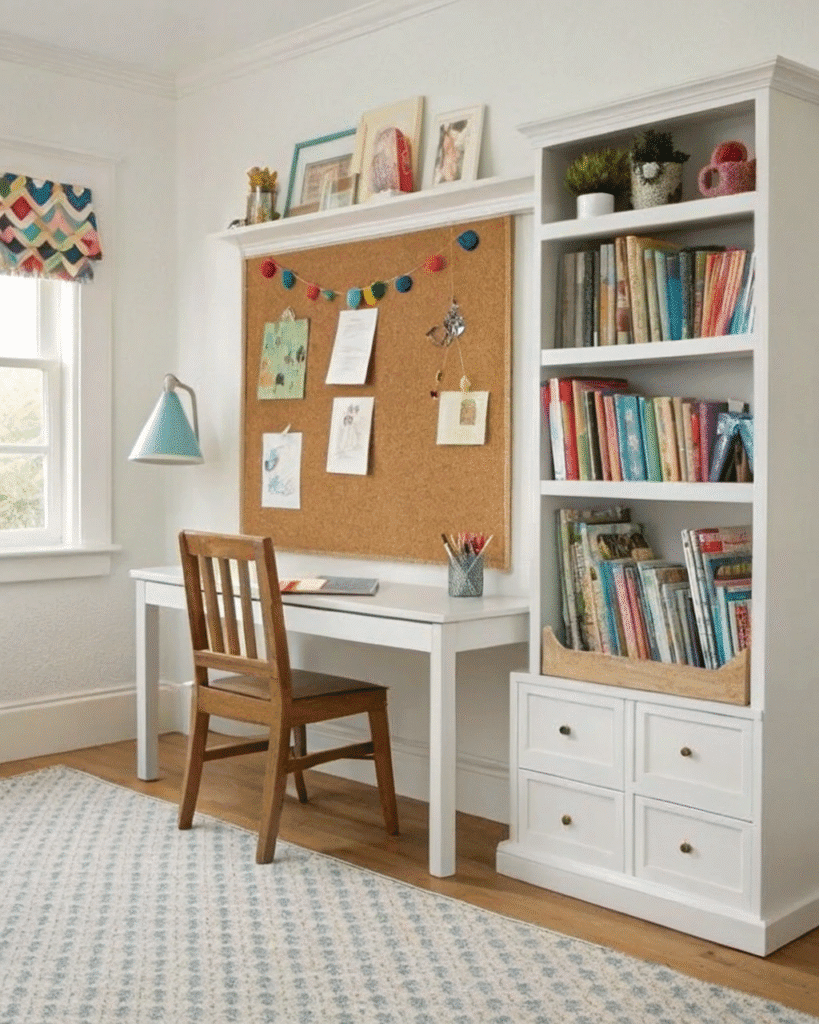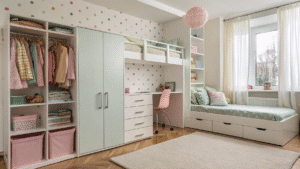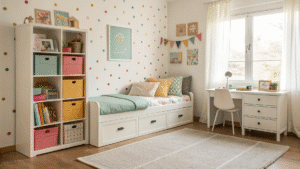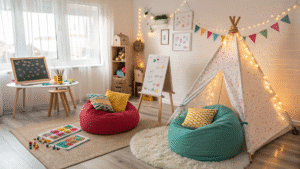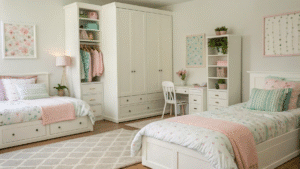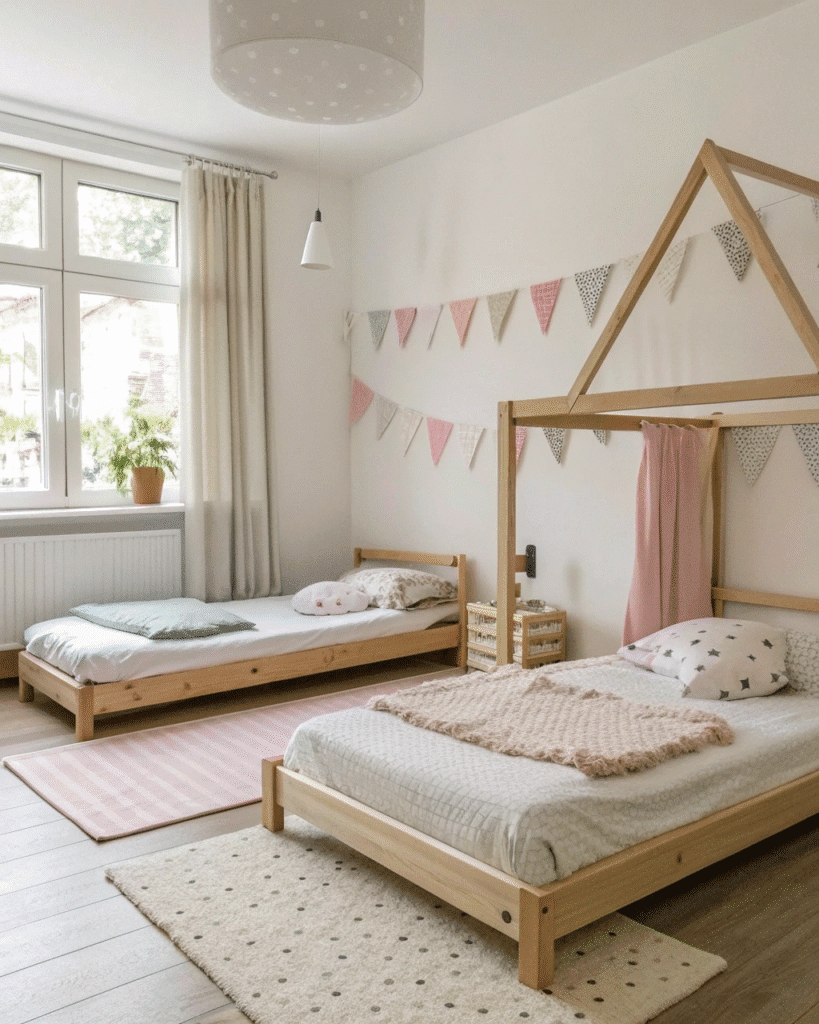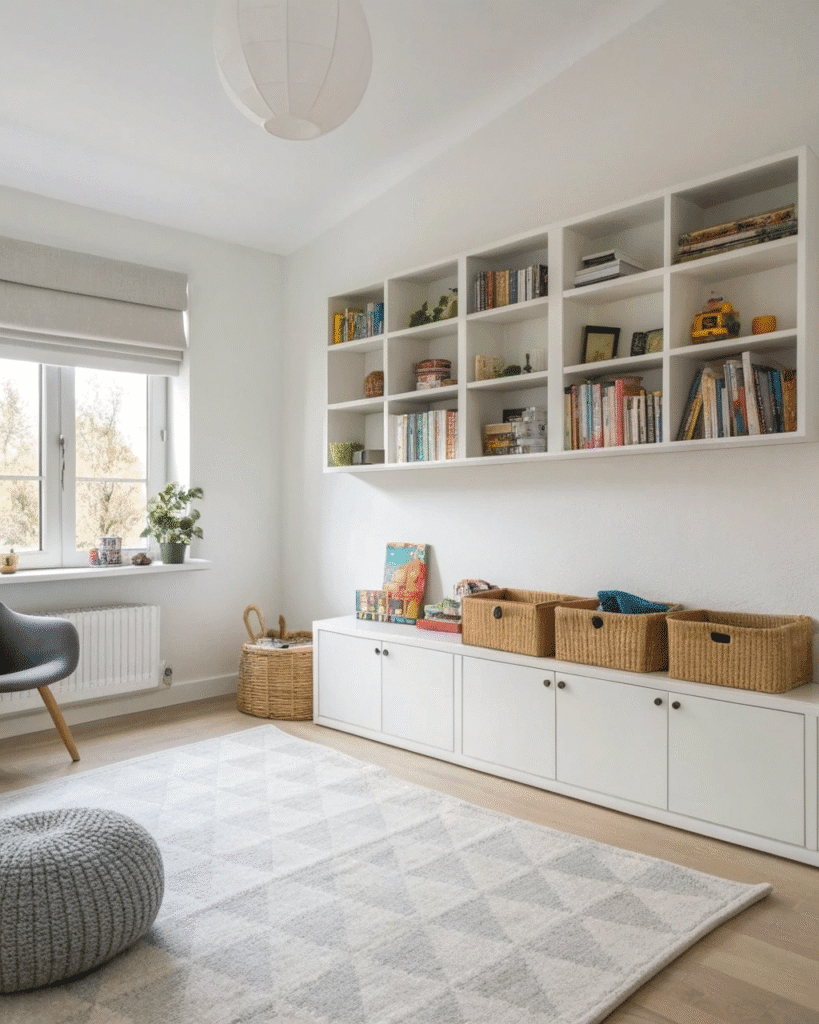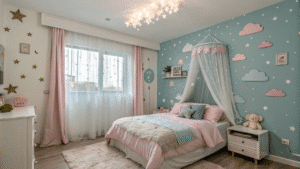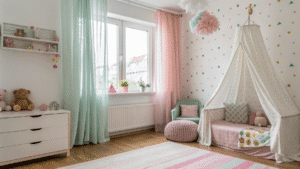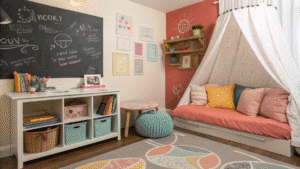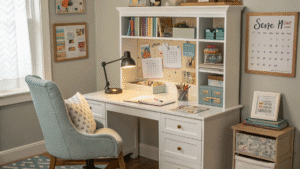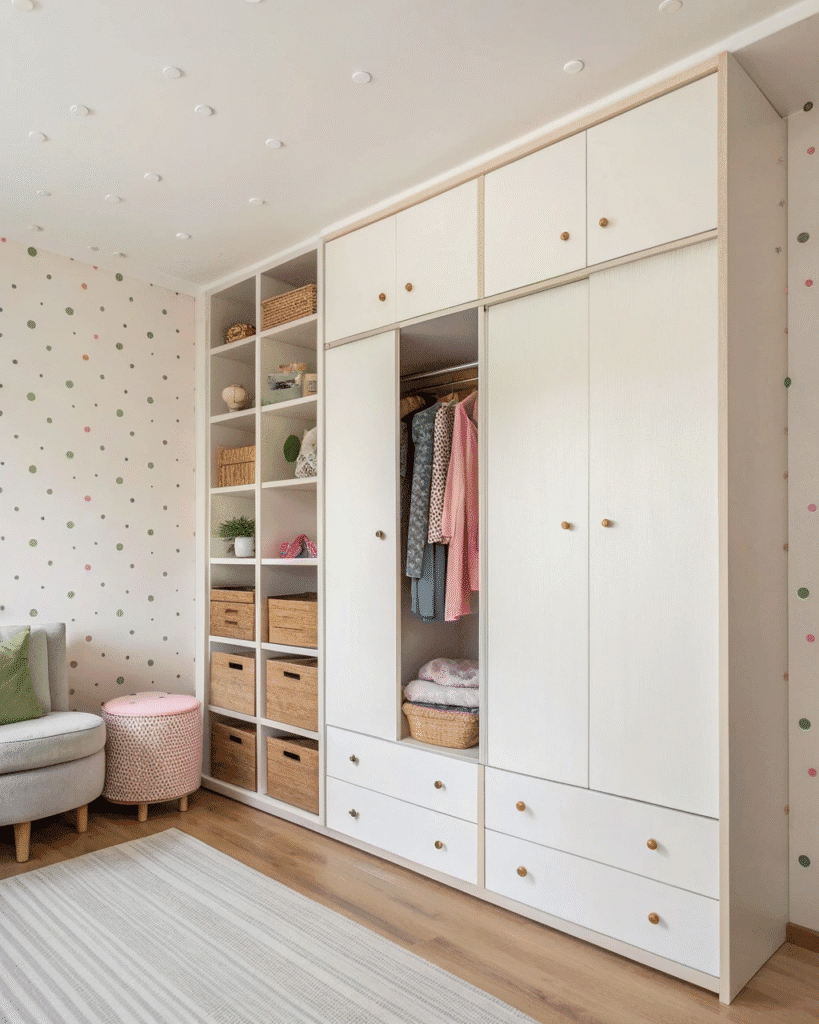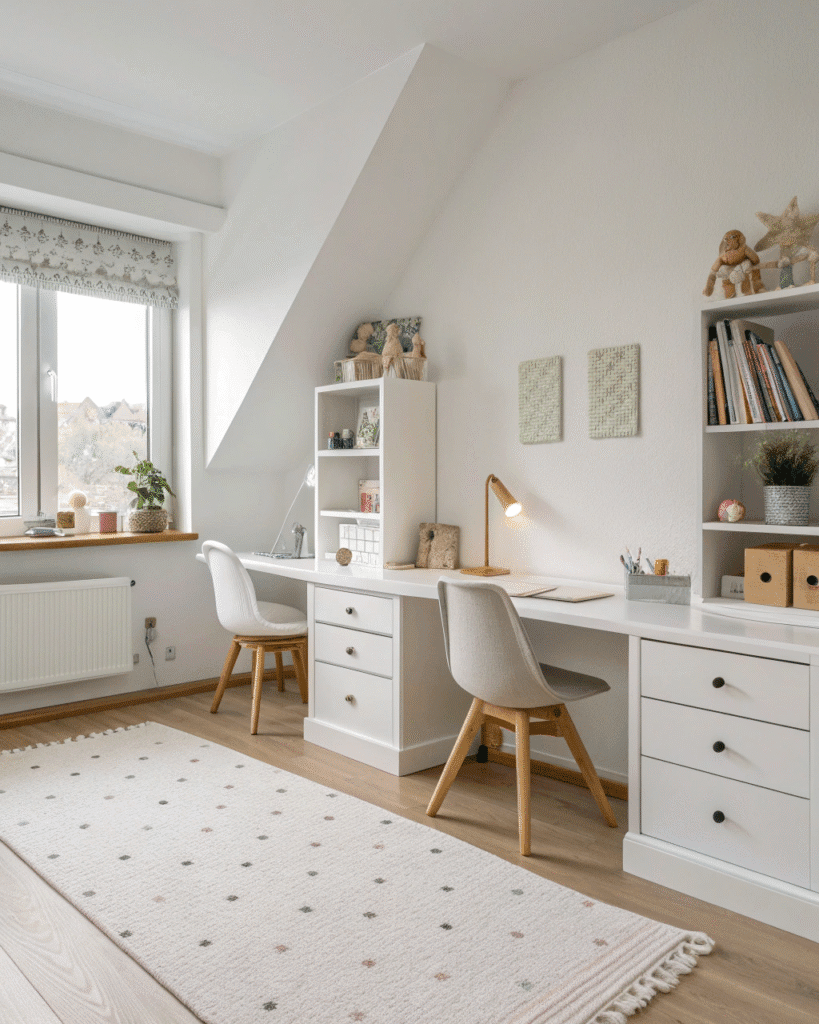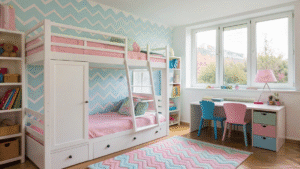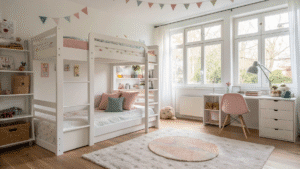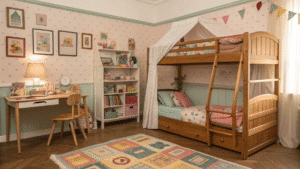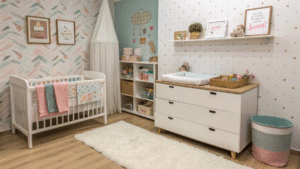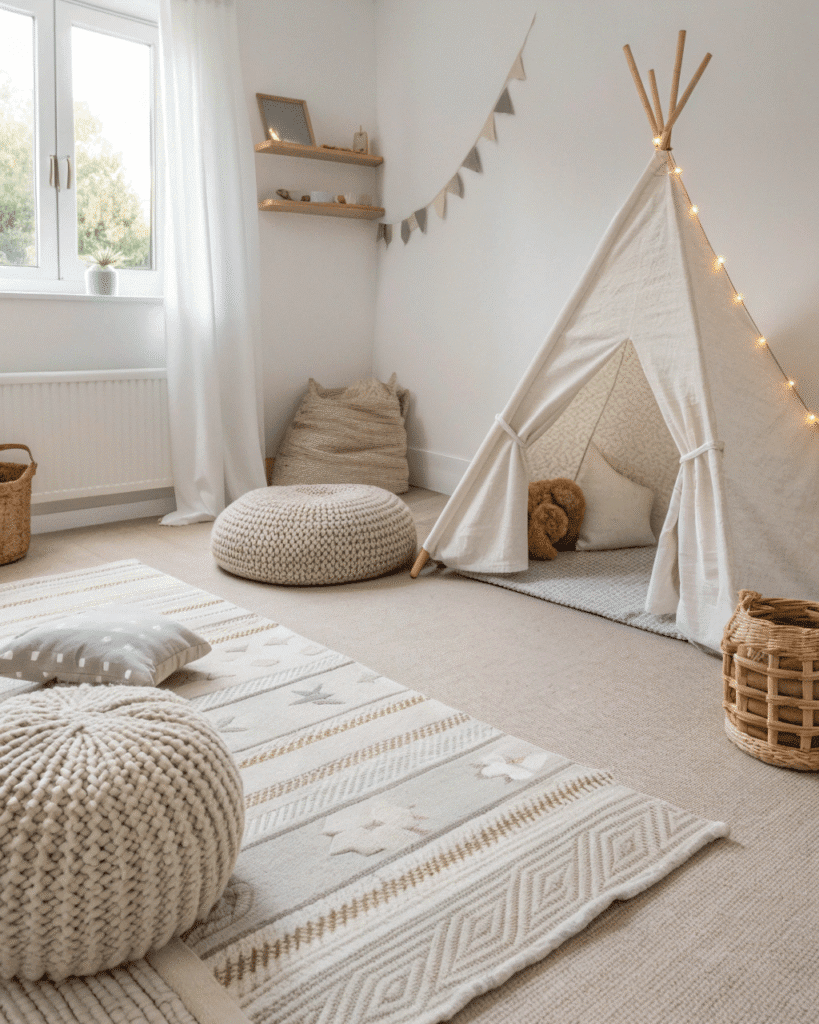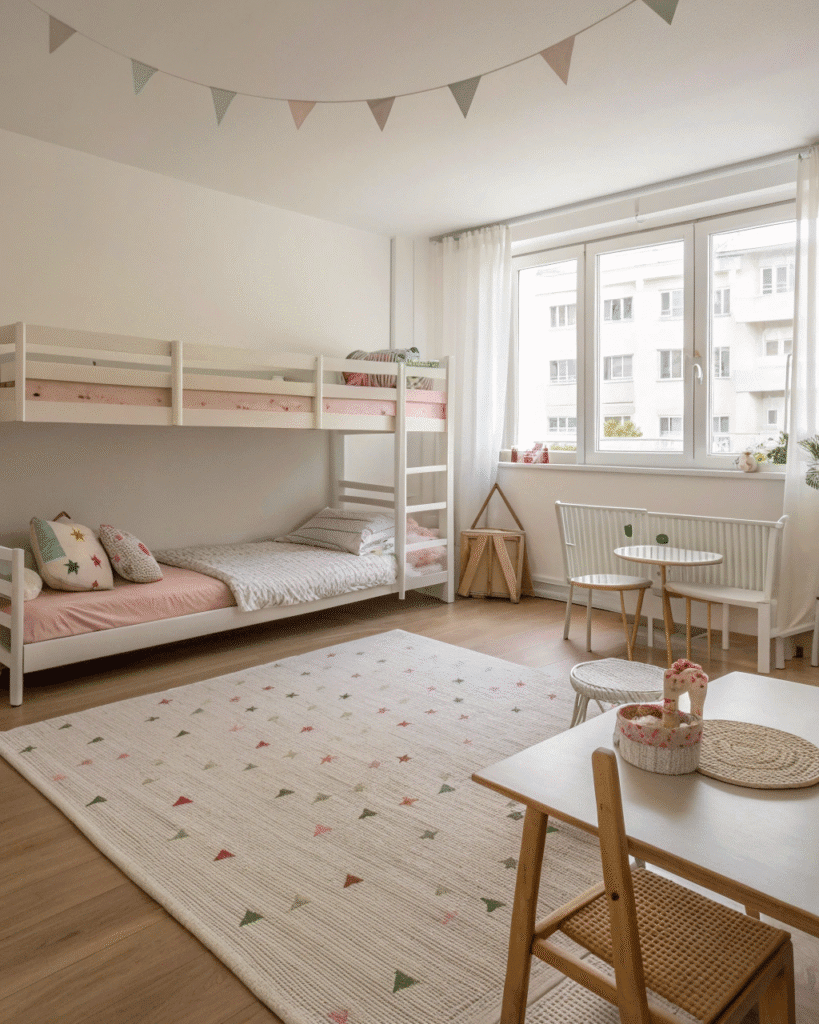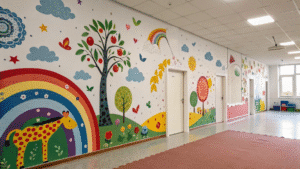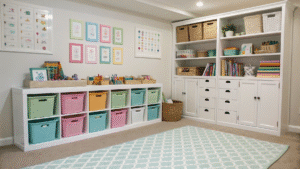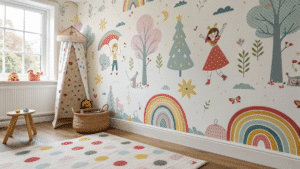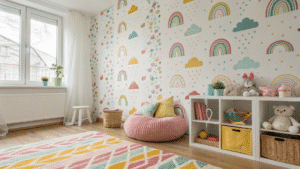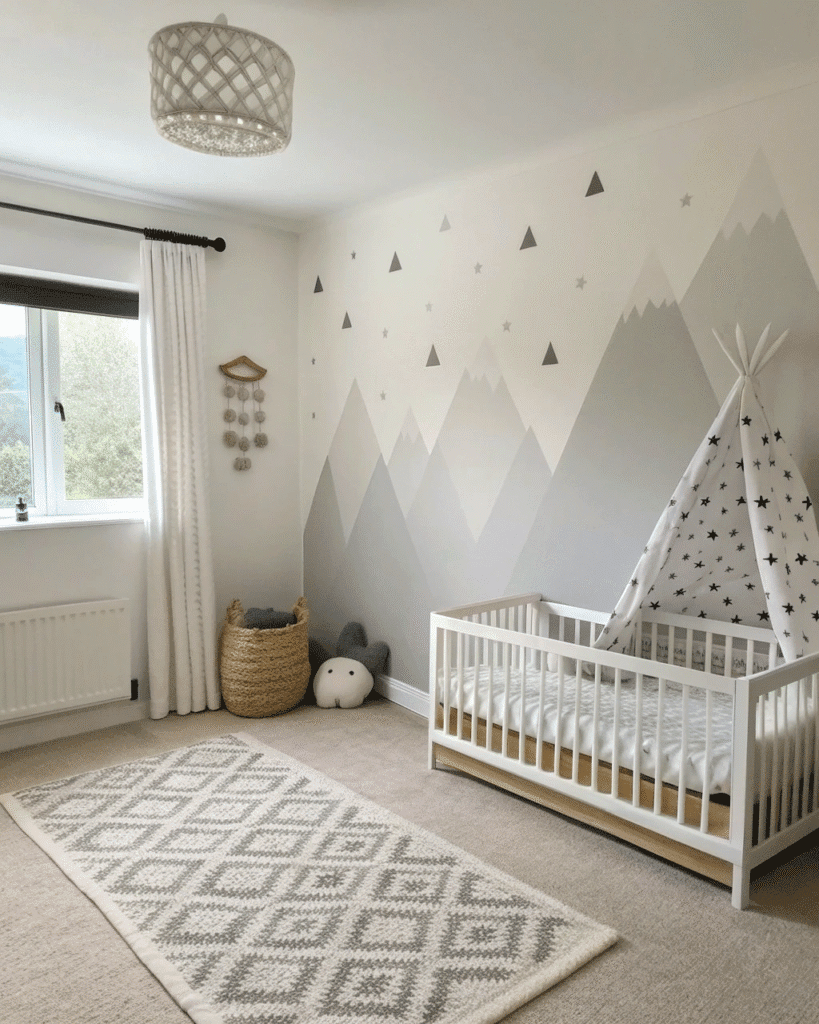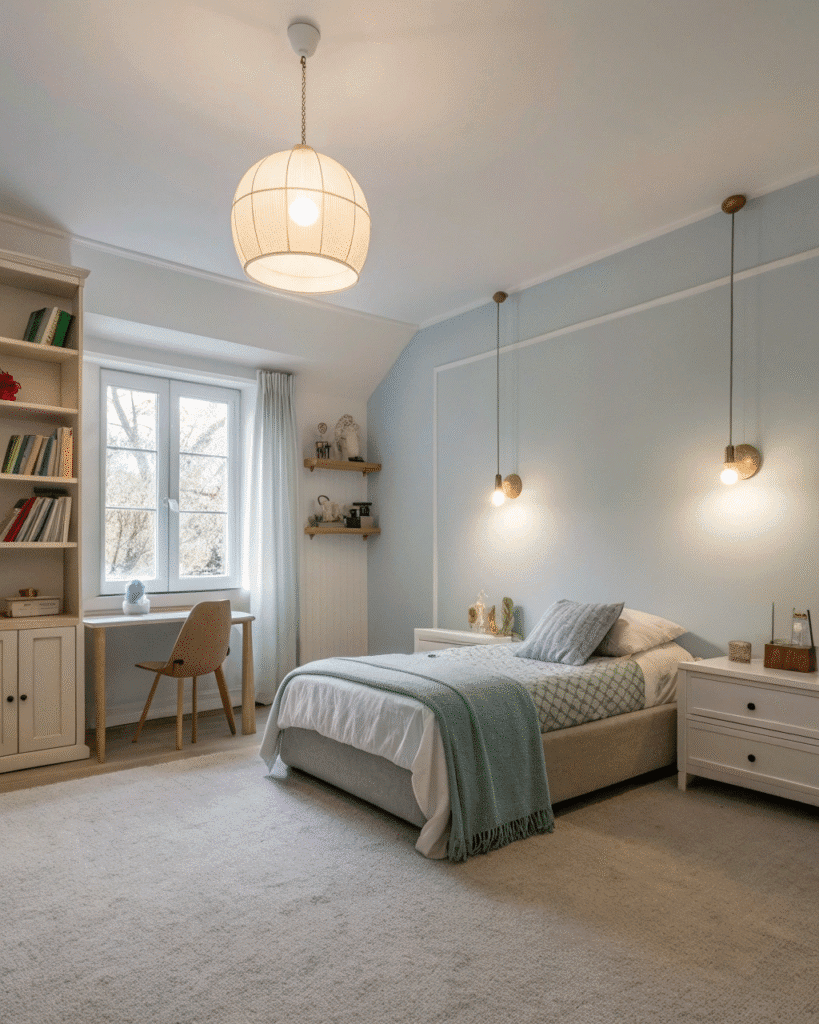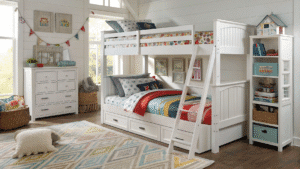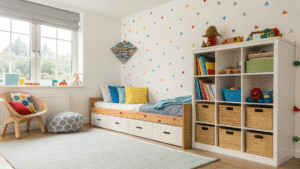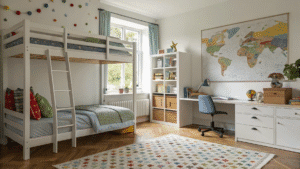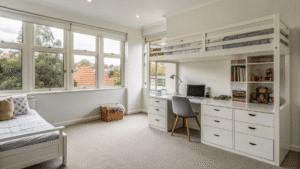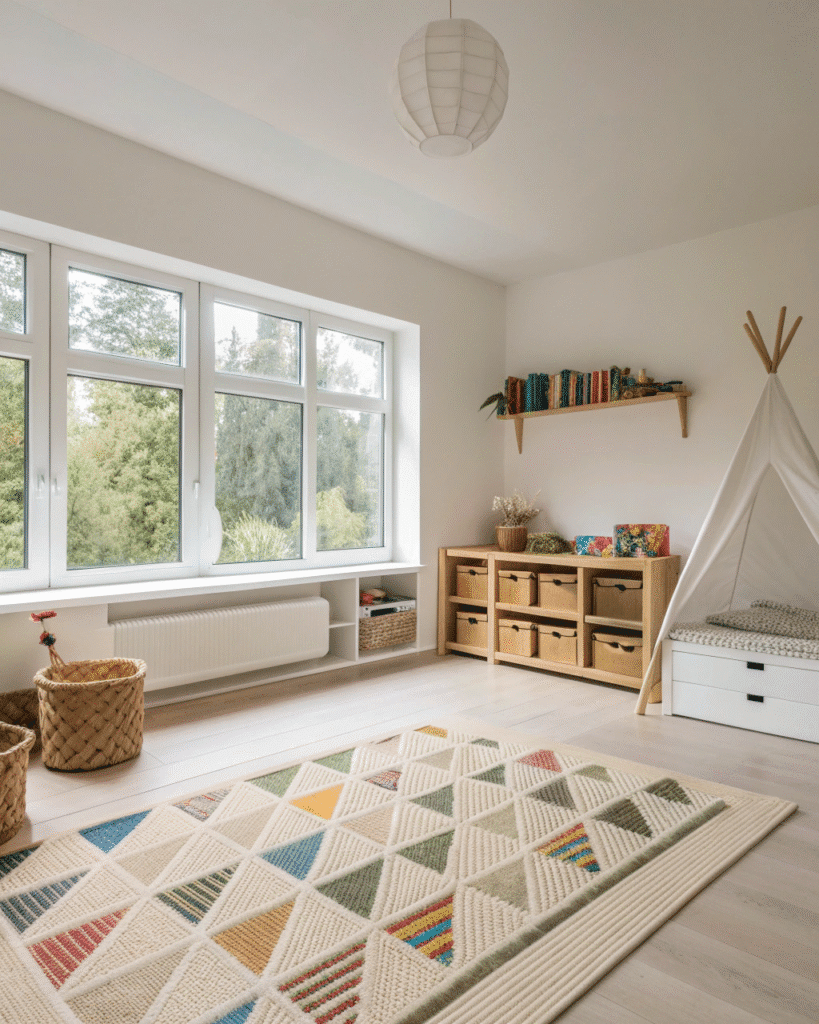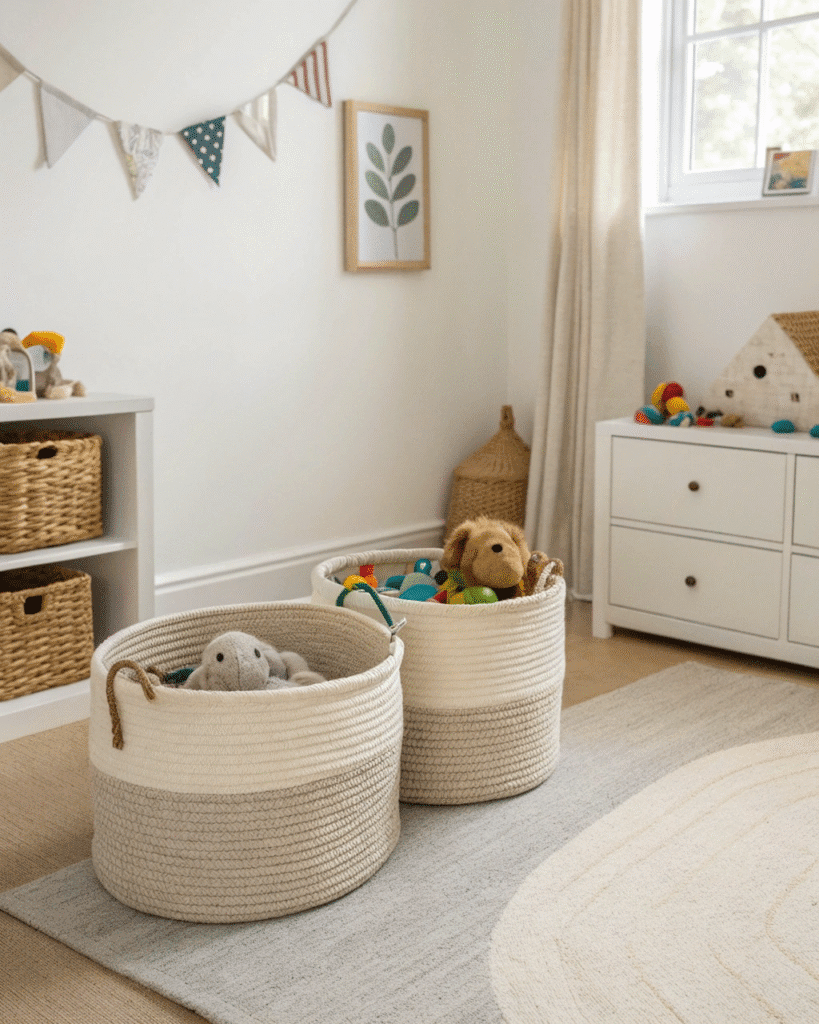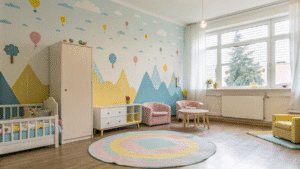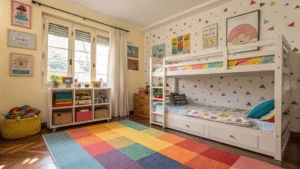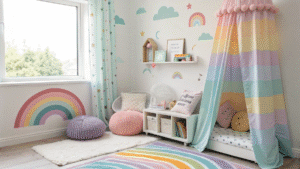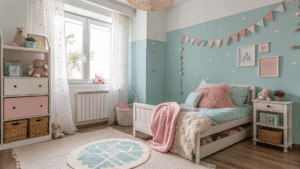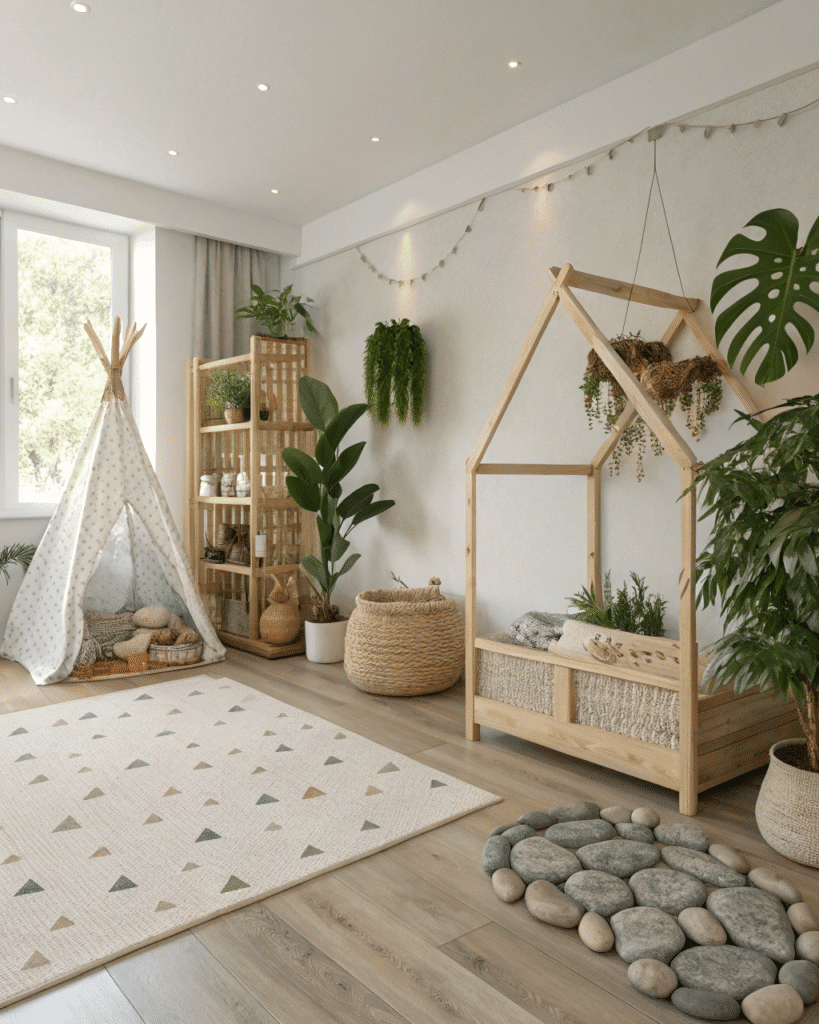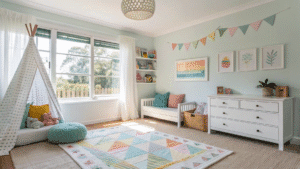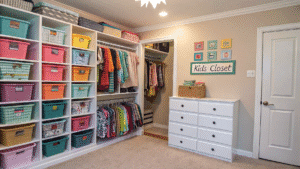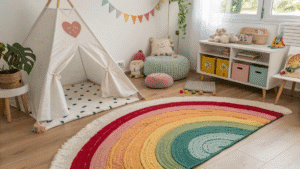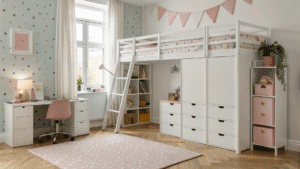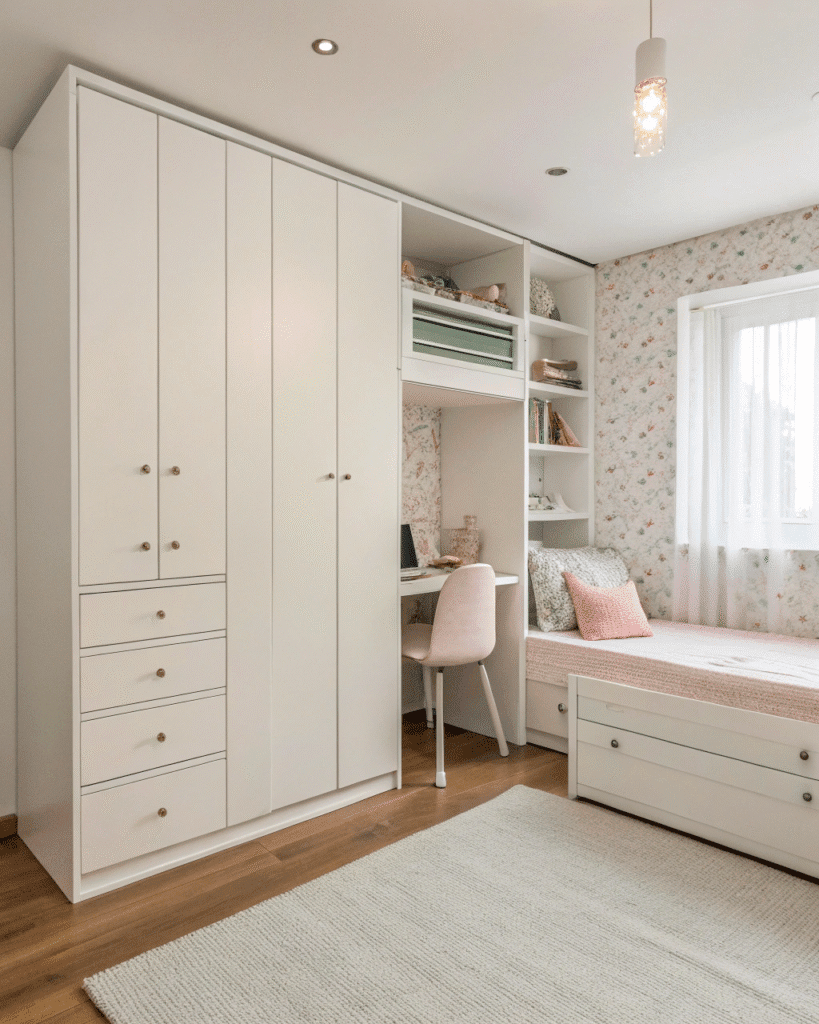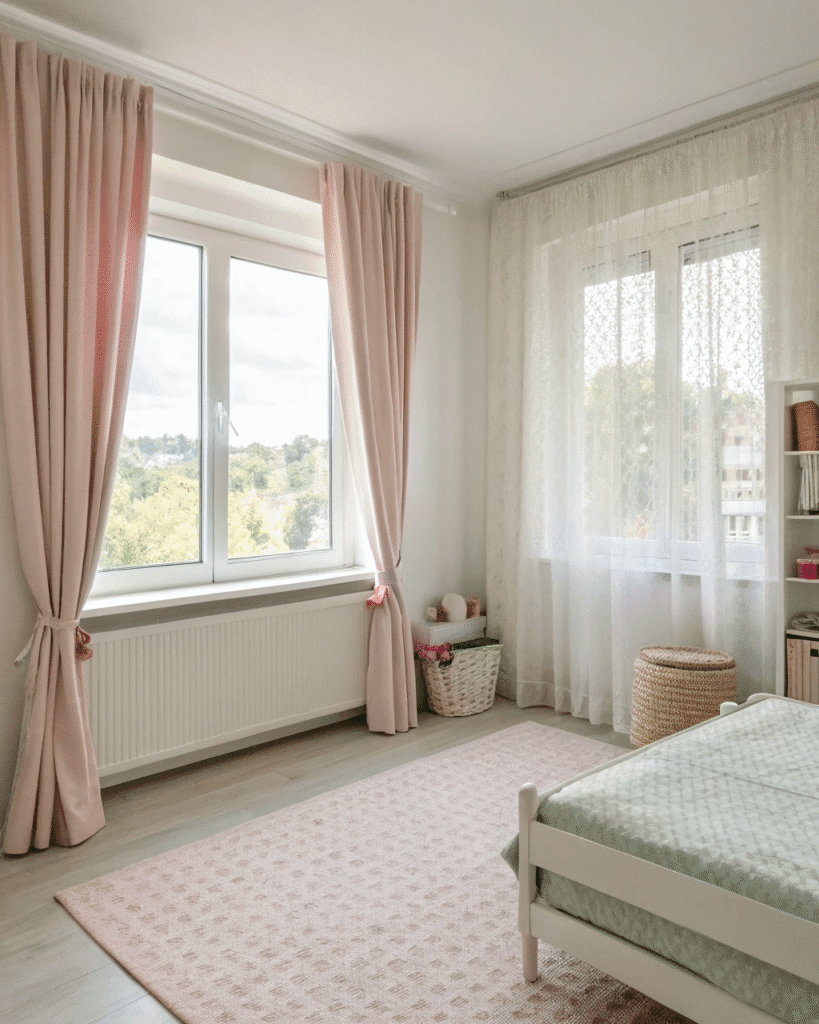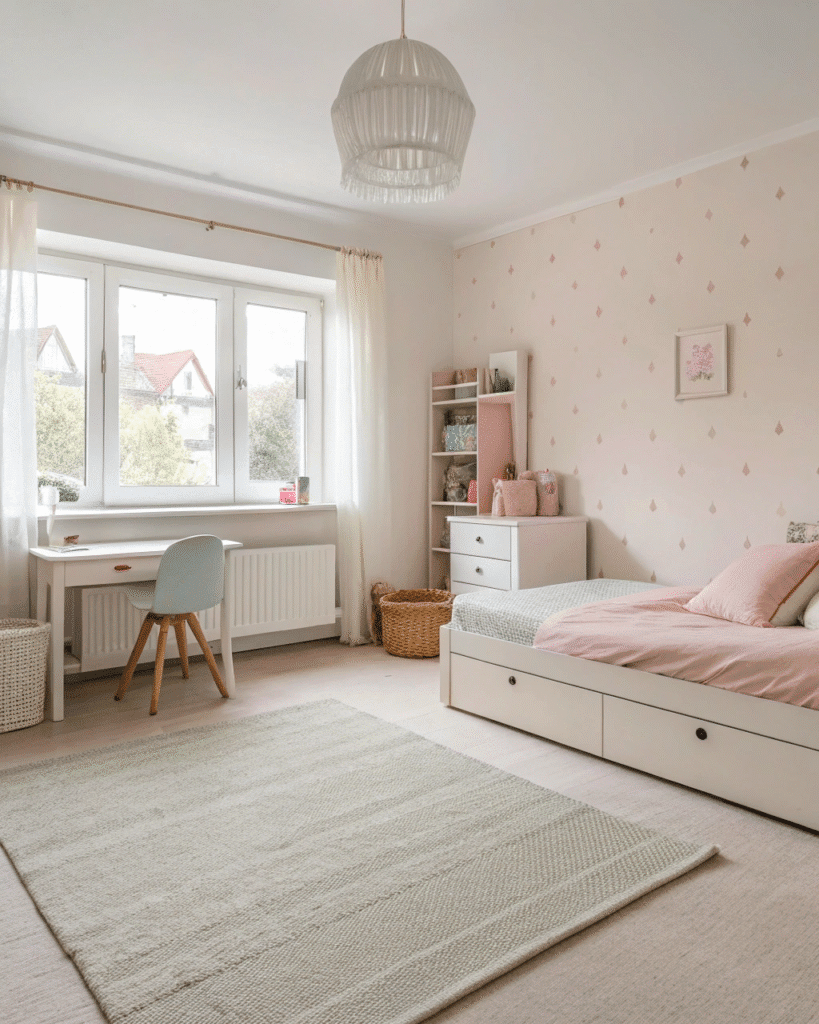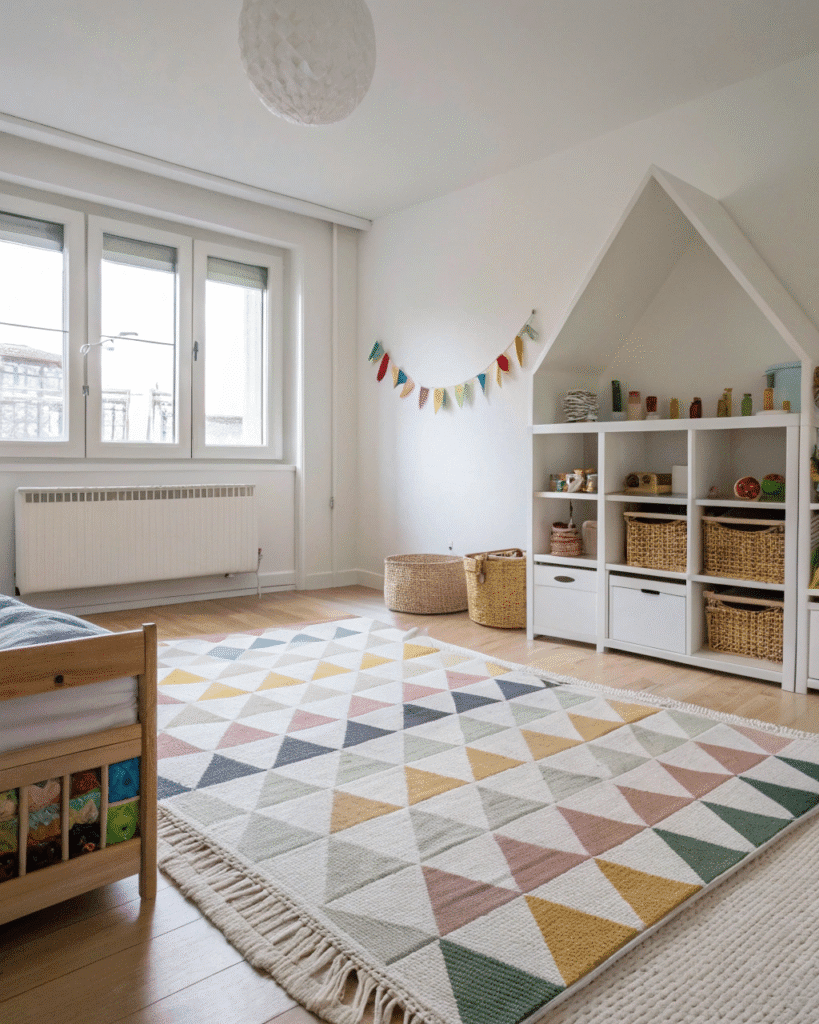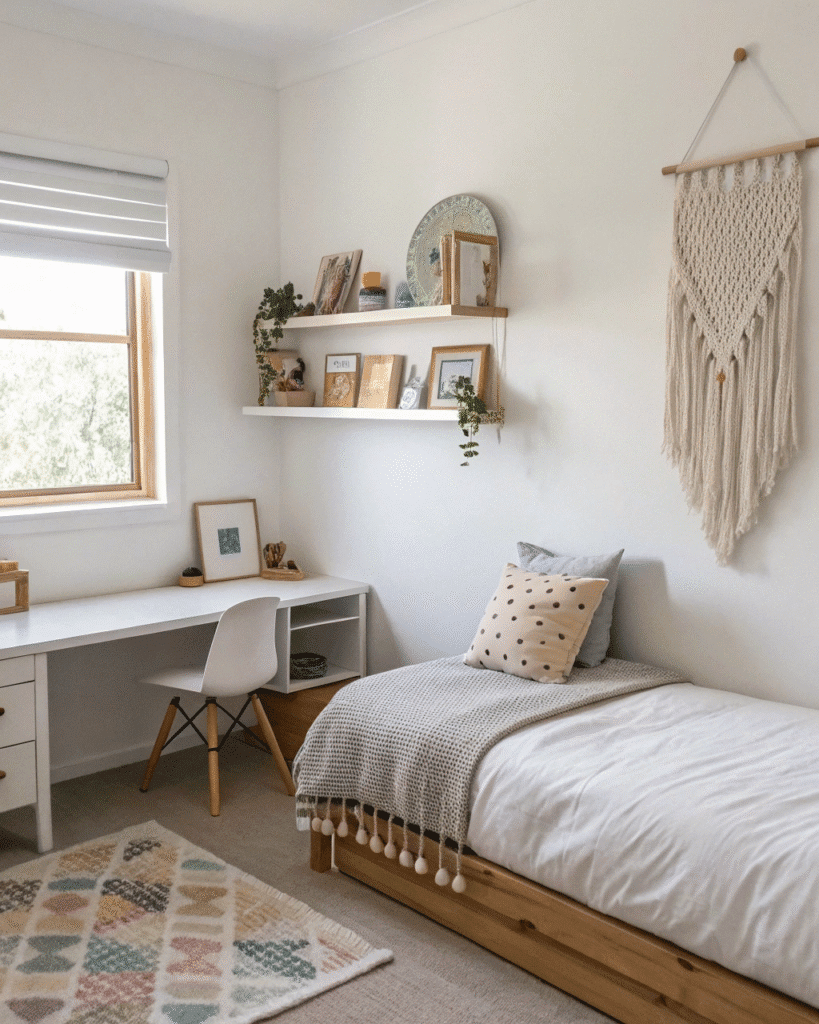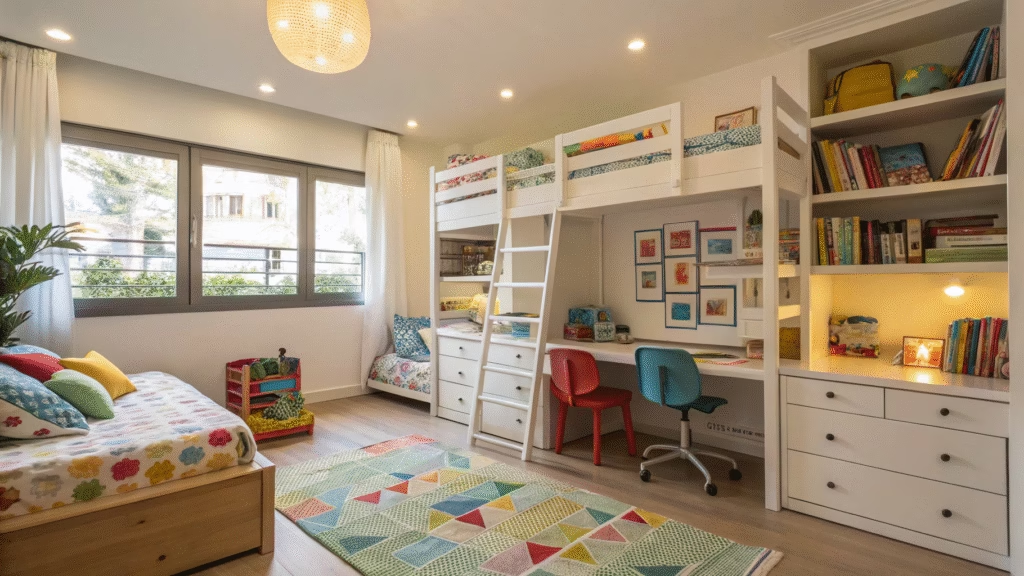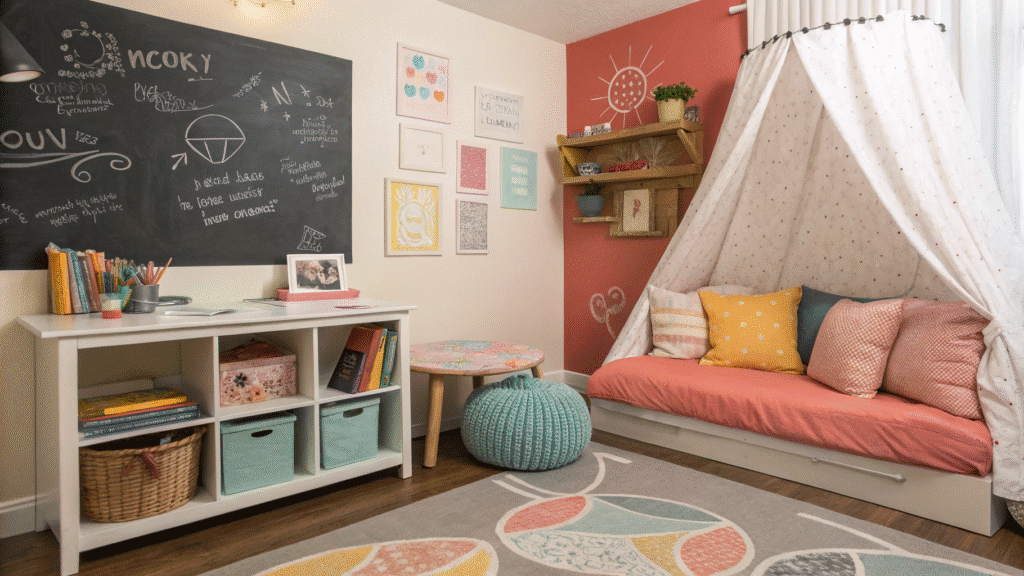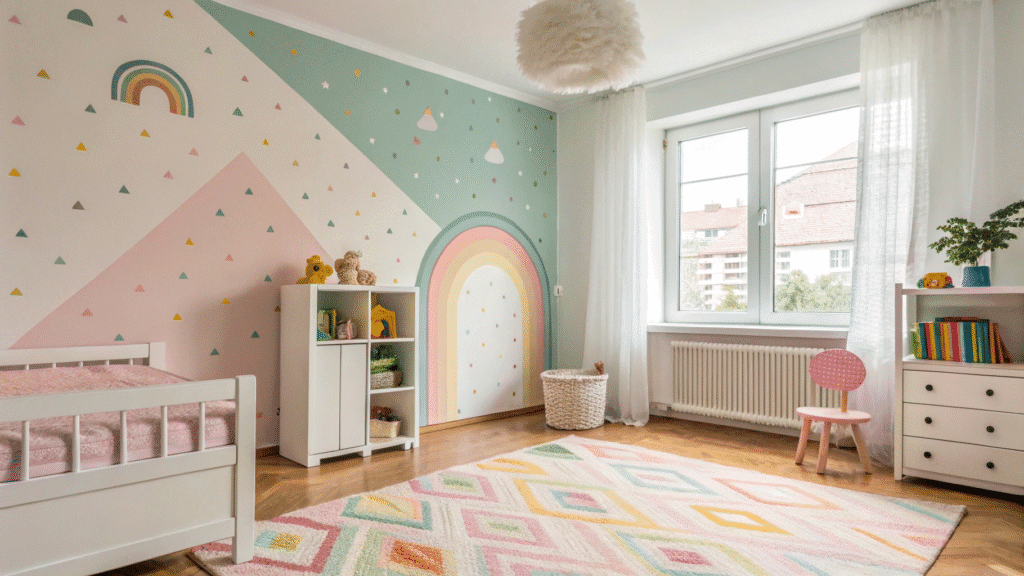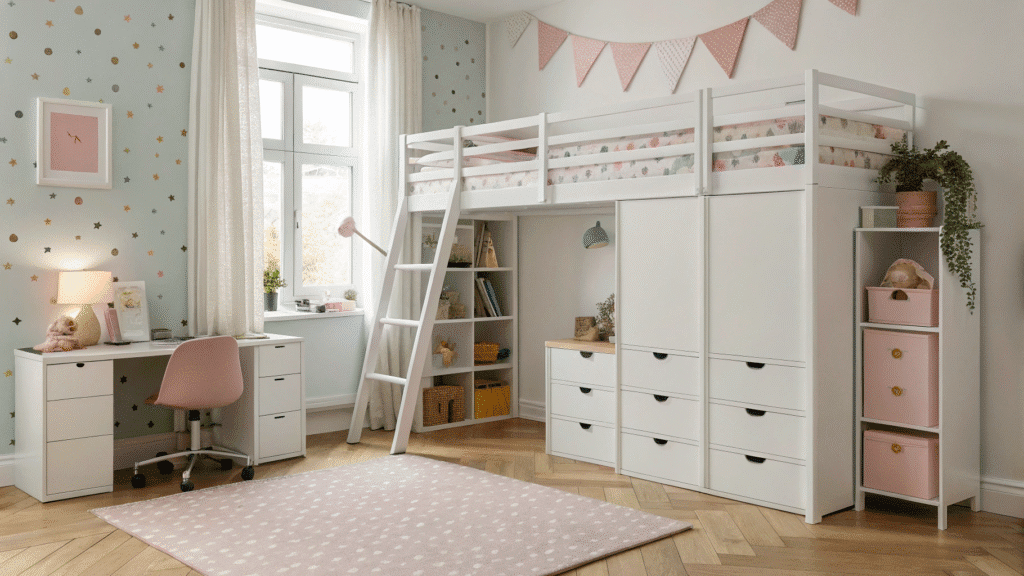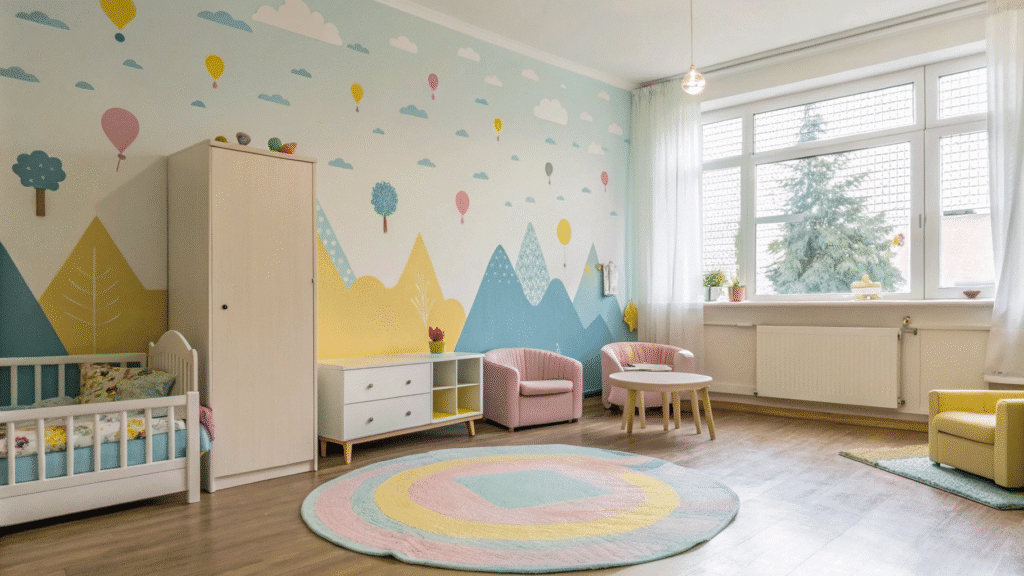18+ Minimalist Kids Room Ideas That Feel Warm and Inviting
Minimalist kids rooms focus on simplicity, functionality, and calm vibes while still feeling cozy and welcoming.
These ideas help create spaces that are clutter-free, stylish, and child-friendly.
1. Neutral Color Palettes
Use soft whites, beige, and light gray as a calming base for the room.
Pro Tip: Add warmth with wooden furniture or pastel accents for a balanced look.
2. Simple Wooden Beds
Choose low-profile, clean-lined wooden beds for a minimalist aesthetic.
Pro Tip: Pair with neutral bedding and subtle patterns to keep the room cozy.
3. Floating Shelves
Open, wall-mounted shelves reduce clutter and display books or toys neatly.
Pro Tip: Keep items minimal and organized to maintain a clean feel.
4. Built-In Storage Solutions
Integrate drawers, cubbies, or wardrobes into the walls for functional minimalism.
Pro Tip: Use uniform bins or baskets for a tidy, harmonious look.
5. Minimalist Desks
Opt for desks with clean lines and minimal hardware for study or play.
Pro Tip: Keep the desktop clutter-free and use drawer organizers.
6. Soft Textiles
Layer neutral rugs, cushions, and throws to add warmth without overcrowding.
Pro Tip: Choose natural fabrics like cotton or linen for comfort and style.
7. Low Furniture Heights
Keep beds, tables, and chairs at child-friendly heights for accessibility and safety.
Pro Tip: Avoid tall, bulky pieces to maintain a spacious feel.
8. Monochrome Wall Accents
Use subtle murals, decals, or geometric shapes in similar tones for visual interest.
Pro Tip: Stick to two or three shades maximum to keep the look cohesive.
9. Minimal Lighting Fixtures
Simple pendant lights or wall sconces keep the design uncluttered.
Pro Tip: Warm light bulbs make the space feel cozy and inviting.
10. Open Play Areas
Leave floor space clear for toys, activities, and imaginative play.
Pro Tip: Rotate toys regularly to maintain simplicity and avoid overcrowding.
11. Neutral Storage Baskets
Use wicker or fabric baskets for toy storage that blends seamlessly into the room.
Pro Tip: Label each basket to encourage kids to tidy up independently.
12. Minimalist Artwork
Choose a few framed prints or illustrations to personalize without overloading walls.
Pro Tip: Opt for muted colors or simple black-and-white designs.
13. Natural Elements
Incorporate plants, wooden decor, or stone accents to bring nature indoors.
Pro Tip: Keep plants small and out of reach for safety.
14. Functional Furniture
Select multipurpose pieces like storage beds or desks with drawers.
Pro Tip: Prioritize pieces that grow with your child for long-term use.
15. Soft Window Treatments
Light, airy curtains or shades maintain privacy while letting in natural light.
Pro Tip: Stick to neutral tones to complement the minimalist palette.
16. Rounded Edges
Choose furniture with soft, rounded corners for a safer, child-friendly space.
Pro Tip: Round edges also visually soften the room for a warmer feel.
17. Minimal Floor Patterns
If using rugs, opt for solid colors or simple geometric designs.
Pro Tip: Avoid busy patterns that distract from the calming minimalist aesthetic.
18. Personal Touches in Small Doses
Display a favorite toy, a small framed photo, or a handmade craft to add character.
Pro Tip: Rotate items seasonally or as interests change to keep the space fresh.
Final Thoughts
Minimalist kids rooms combine simplicity with warmth, creating spaces that feel inviting and organized. By focusing on neutral tones, functional furniture, and a few personal touches, you can design a room that’s both calm and playful.
- 16+ Friendship Bracelet Ideas for Girls - December 2, 2025
- 15+ Easy DIY Jewelry Crafts for Kids - December 2, 2025
- 14+ Simple DIY Puppets for Toddlers - December 2, 2025

